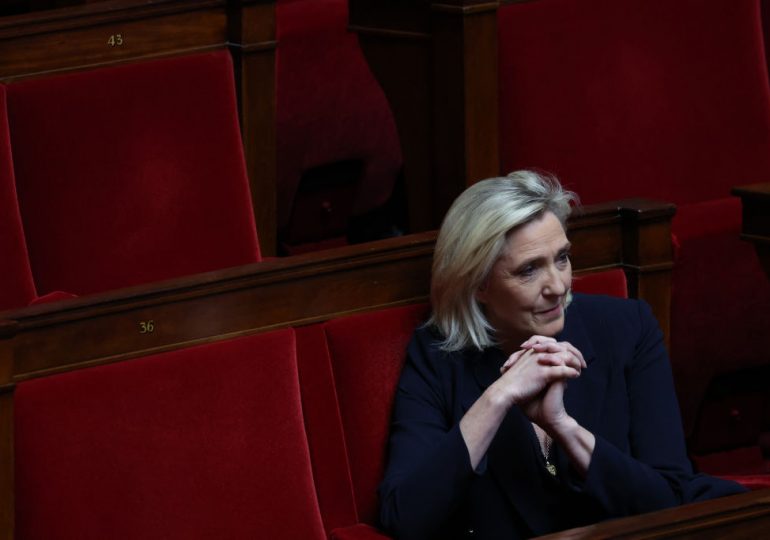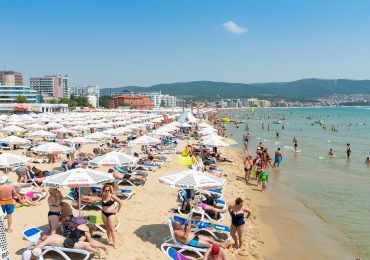As the E.U. moves toward parliamentary elections in June, Europe’s populist right is having a moment. Italy’s Prime Minister Giorgia Meloni has defied predictions of a short tenure. In Spain, political attacks on Socialist Party Prime Minister Pedro Sánchez and his wife have created turmoil. The right has also made gains in the Netherlands and Portugal.
[time-brightcove not-tgx=”true”]
But the biggest fear for those dreading a possible far-right surge across Europe has long been the arrival on France’s center stage of anti-immigrant icon Marine Le Pen and her National Rally (RN) party. The RN’s double-digit lead over President Emmanuel Macron’s Renew alliance in the June contest signals that inflation, years of unpopular reform plans, and general voter fatigue are upstaging Macron’s aggressive efforts to tie Le Pen’s party to Russia’s Vladimir Putin. (Years ago, the RN accepted a loan from a Russian bank.)
Read More: How the Far Right Already Won in France
In the past, French voters have balked at lifting Le Pen or her father Jean-Marie Le Pen, who founded the RN’s precursor, to national prominence. European Parliament elections have little direct impact on France’s government, but they offer voters a chance to protest Macron, and a large enough RN landslide in June could force parliamentary elections in France—perhaps even ushering in Le Pen as Prime Minister.
How would that happen? It would likely begin with a successful censure motion against the government of Prime Minister Gabriel Attal, a Macron ally, in France’s National Assembly this summer. A motion led by the center-right Republicans would draw support from across the political spectrum and could provide the 289 “yes” votes needed to force new elections.
If “yes” carried the day, Macron would almost certainly try to regain political momentum by delaying parliamentary elections until the fall—picking a new Prime Minister, who wouldn’t be required by France’s constitution to seek a confidence vote. But the pressure for a vote would only grow and new censure motions would likely follow, leaving Macron little choice but to dissolve the National Assembly and give the opposition the elections it wants. Current surveys show that given the chance, Le Pen’s RN might well cut deeply enough into the seat share of Macron’s alliance to force the President to choose an RN Prime Minister, maybe even Le Pen herself.
For Le Pen, France’s perennial protest candidate, it won’t be easy. A French election campaign will be different than a race for seats in the European Parliament. Moderate voters might rally to block Le Pen if she’s seen as a possible Prime Minister. And, unlike in the European vote, France holds two-round legislative elections, minimizing the influence of parties seen as extreme, like RN.
Read More: Inside Roberta Metsola’s Plans to Shake Up Europe’s Parliament
But if Le Pen overcomes these steep obstacles to win a majority or even just the largest number of seats in France’s Parliament, she would transform the country’s politics.
Under the French constitution, the President has special responsibilities for Europe, foreign affairs, and defense, but a Prime Minister with a parliamentary majority can lead on domestic policy. Le Pen has said she favors withholding part of France’s financial contribution to the E.U. and would adopt policies that conflict with bloc rules on the single market and migration. She might also try to block or minimize French aid to Ukraine. In any of these cases, France’s turmoil would produce aftershocks across Europe and leave policymakers scrambling for answers.
A Le Pen premiership, if deftly handled, could boost her chance of becoming President later on. (She already saw her vote share jump from 34% in the 2017 presidential contest to 41% in the 2022 one.) The next vote for the top job isn’t until 2027, giving her critics, in France and beyond, plenty of time to worry.
Leave a comment








